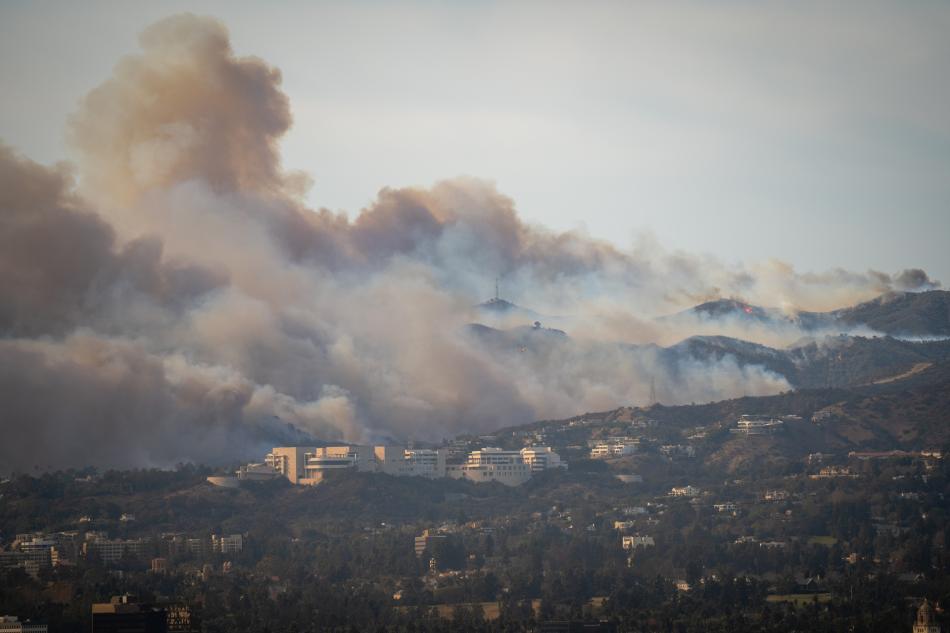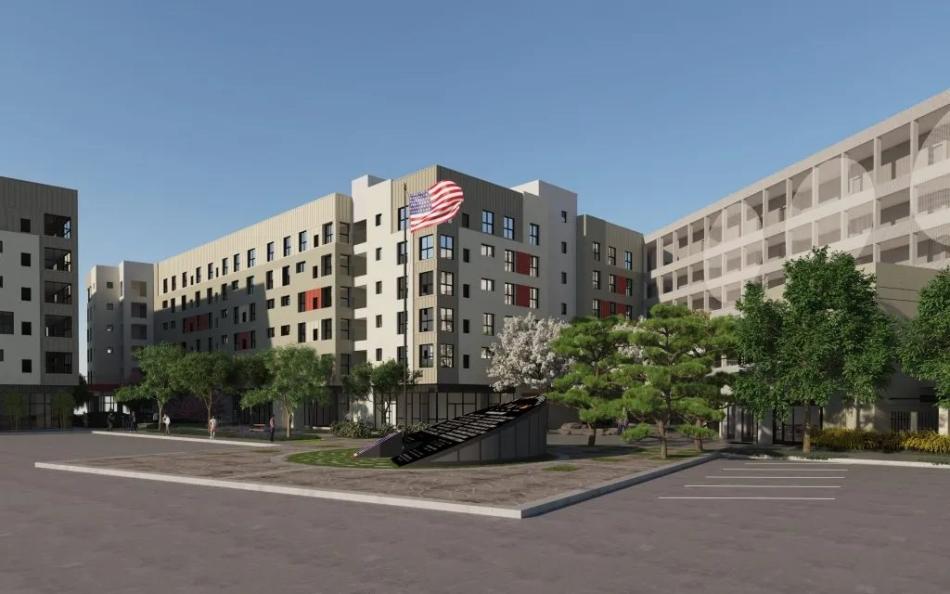When the recent LA wildfires devastated the Pacific Palisades, Governor Newsom did not hesitate to take action. He acted quickly and effectively, cutting through red tape and facilitating building measures that will accelerate building at record speed. Like the fires, the LA housing crisis should be declared a state of emergency, devastating thousands of families each year - why aren’t we using the same emergency measures to build the homes we desperately need?
The fires have shined a light on how pressing housing insecurity is, and now, more than ever, we need homes. But long before the wildfires, LA has suffered from housing shortages. It is easy to take action when a crisis is obvious. What’s difficult is recognizing when an issue has become a state of emergency, after decades of decisions that led us to this point. And unlike the devastation of a natural disaster, this crisis disproportionately affects marginalized communities and middle to low income families.
 Wildfire in Pacific Palisades, Los Angeles, January 8, 2025, towards Getty Center and BrentwoodShutterstock
Wildfire in Pacific Palisades, Los Angeles, January 8, 2025, towards Getty Center and BrentwoodShutterstock
As a young woman putting herself through graduate school, I spend almost 80% of my income on rent. I have no kids, am only responsible for myself and my cat, and grew up in a middle class family in the suburbs of LA. I feel the effects of housing insecurity and can only imagine what this stress would be like if I had a family, extra debts to pay, or was navigating immigration challenges, like so many LA residents are.
Historically, the only way to lower market-priced housing is to increase supply - not only to meet demand but surpass it. While environmental regulations like the California Environmental Quality Act (CEQA) and the California entitlement process have admirable intentions in protecting the environment and regulating development, it has dramatically slowed construction, exponentially de-incentivized development, and ultimately contributed to the housing crisis.
Mayor Bass has taken important steps in suspending zoning, environmental, and permitting reviews for affordable housing developments through Executive Directive 1. Projects like the Go For Broke Plaza and First Street North Residences in Little Tokyo are real-time examples of how development can work with a community to uphold the integrity of its culture. Likewise, Governor Newsom has taken effective executive action in suspending similar regulations for rebuilding LA fire-affected communities. These processes have paved a way forward for construction in Los Angeles, but the suspensions should be extended to all multi-family developers. Market-price housing will only become affordable with an increase in supply, and developers must be incentivized, not deterred, to accomplish this.
Studying graduate-level social work at USC, I have become acutely aware how housing insecurity damages the mental and physical health of families. I see multi-family residences everyday that are severely overcrowded and rundown. According to Esperanza Community Housing, health disparities run rampant in these communities and over 70% of the family’s income is dedicated to renting units, leaving little for other basic necessities. Anything to enhance one’s quality of life, like access to healthy food or quality healthcare, is impossible.
Additionally, you don’t need to be a social work student to be confronted with the immense unhoused population. In 2024, over 75,000 people were unhoused, 43% Latino and 31% Black, according to the Los Angeles Homeless Services Authority. Development is not an issue of disrupting neighborhoods or making big corporations rich; housing insecurity is a crisis that needs to be solved and construction is the way forward.
The only way to make progress is to take a critical eye to everything, even one’s own political party and beliefs. While I admire the environmental work that proponents of CEQA are trying to accomplish and understand the bureaucracy of the entitlement process, I cannot ignore the immense negative effects it has on the housing crisis. It is time to recognize when a system of rules and regulations are ineffective. The housing crisis is a state of emergency - and it should be treated as such.
Severina is a graduate student at the University of Southern California Suzanne Dworak-Peck School of Social Work. A born-and-raised Angeleno, she focuses on housing policy and social justice issues in Los Angeles. She holds a psychology degree from Northeastern University and previously had a career as a professional ballet dancer.







